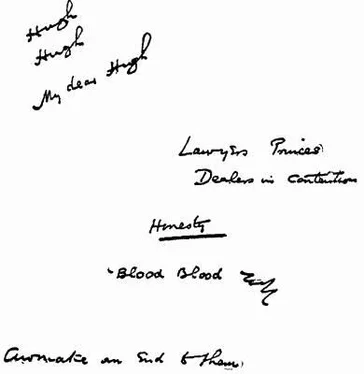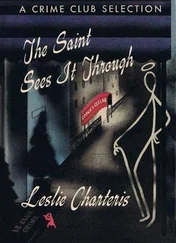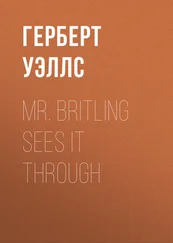Herbert Wells - Mr. Britling Sees It Through
Здесь есть возможность читать онлайн «Herbert Wells - Mr. Britling Sees It Through» весь текст электронной книги совершенно бесплатно (целиком полную версию без сокращений). В некоторых случаях можно слушать аудио, скачать через торрент в формате fb2 и присутствует краткое содержание. Жанр: Классическая проза, на английском языке. Описание произведения, (предисловие) а так же отзывы посетителей доступны на портале библиотеки ЛибКат.
- Название:Mr. Britling Sees It Through
- Автор:
- Жанр:
- Год:неизвестен
- ISBN:нет данных
- Рейтинг книги:4 / 5. Голосов: 1
-
Избранное:Добавить в избранное
- Отзывы:
-
Ваша оценка:
- 80
- 1
- 2
- 3
- 4
- 5
Mr. Britling Sees It Through: краткое содержание, описание и аннотация
Предлагаем к чтению аннотацию, описание, краткое содержание или предисловие (зависит от того, что написал сам автор книги «Mr. Britling Sees It Through»). Если вы не нашли необходимую информацию о книге — напишите в комментариях, мы постараемся отыскать её.
Mr. Britling Sees It Through — читать онлайн бесплатно полную книгу (весь текст) целиком
Ниже представлен текст книги, разбитый по страницам. Система сохранения места последней прочитанной страницы, позволяет с удобством читать онлайн бесплатно книгу «Mr. Britling Sees It Through», без необходимости каждый раз заново искать на чём Вы остановились. Поставьте закладку, и сможете в любой момент перейти на страницу, на которой закончили чтение.
Интервал:
Закладка:
He appeared coming out of the house into the sunshine, and so distraught that he had forgotten the protection of his hat. He was very pink and deeply moved.
"But what shall I do without him?" he cried. "He has gone!"
The squirrel, Mr. Direck gathered, had been bought by Mrs. Britling for the boys some month or so ago; it had been christened "Bill" and adored and then neglected, until Herr Heinrich took it over. It had filled a place in his ample heart that the none too demonstrative affection of the Britling household had left empty. He abandoned his pursuit of philology almost entirely for the cherishing and adoration of this busy, nimble little creature. He carried it off to his own room, where it ran loose and took the greatest liberties with him and his apartment. It was an extraordinarily bold and savage little beast even for a squirrel, but Herr Heinrich had set his heart and his very large and patient will upon the establishment of sentimental relations. He believed that ultimately Bill would let himself be stroked, that he would make Bill love him and understand him, and that his would be the only hand that Bill would ever suffer to touch him. In the meanwhile even the untamed Bill was wonderful to watch. One could watch him forever. His front paws were like hands, like a musician's hands, very long and narrow. "He would be a musician if he could only make his fingers go apart, because when I play my violin he listens. He is attentive."
The entire household became interested in Herr Heinrich's attacks upon Bill's affection. They watched his fingers with particular interest because it was upon those that Bill vented his failures to respond to the stroking advances.
"To-day I have stroked him once and he has bitten me three times," Herr Heinrich reported. "Soon I will stroke him three times and he shall not bite me at all.... Also yesterday he climbed up me and sat on my shoulder, and suddenly bit my ear. It was not hard he bit, but sudden.
"He does not mean to bite," said Herr Heinrich. "Because when he has bit me he is sorry. He is ashamed.
"You can see he is ashamed."
Assisted by the two small boys, Herr Heinrich presently got a huge bough of oak and brought it into his room, converting the entire apartment into the likeness of an aviary. "For this," said Herr Heinrich, looking grave and diplomatic through his glasses, "Billy will be very grateful. And it will give him confidence with me. It will make him feel we are in the forest together."
Mrs. Britling came to console her husband in the matter.
"It is not right that the bedroom should be filled with trees. All sorts of dust and litter came in with it."
"If it amuses him," said Mr. Britling.
"But it makes work for the servants."
"Do they complain?"
"No."
"Things will adjust themselves. And it is amusing that he should do such a thing...."
And now Billy had disappeared, and Herr Heinrich was on the verge of tears. It was so ungrateful of Billy. Without a word.
"They leave my window open," he complained to Mr. Direck. "Often I have askit them not to. And of course he did not understand. He has out climbit by the ivy. Anything may have happened to him. Anything. He is not used to going out alone. He is too young.
"Perhaps if I call—"
And suddenly he had gone off round the house crying: "Beelee! Beelee! Here is an almond for you! An almond, Beelee!"
"Makes me want to get up and help," said Mr. Direck. "It's a tragedy."
Everybody else was helping. Even the gardener and his boy knocked off work and explored the upper recesses of various possible trees.
"He is too young," said Herr Heinrich, drifting back.... And then presently: "If he heard my voice I am sure he would show himself. But he does not show himself."
It was clear he feared the worst....
At supper Billy was the sole topic of conversation, and condolence was in the air. The impression that on the whole he had displayed rather a brutal character was combated by Herr Heinrich, who held that a certain brusqueness was Billy's only fault, and told anecdotes, almost sacred anecdotes, of the little creature's tenderer, nobler side. "When I feed him always he says, 'Thank you,'" said Herr Heinrich. "He never fails." He betrayed darker thoughts. "When I went round by the barn there was a cat that sat and looked at me out of a laurel bush," he said. "I do not like cats."
Mr. Lawrence Carmine, who had dropped in, was suddenly reminded of that lugubrious old ballad, "The Mistletoe Bough," and recited large worn fragments of it impressively. It tells of how a beautiful girl hid away in a chest during a Christmas game of hide-and-seek, and how she was found, a dried vestige, years afterwards. It took a very powerful hold upon Herr Heinrich's imagination. "Let us now," he said, "make an examination of every box and cupboard and drawer. Marking each as we go...."
When Mr. Britling went to bed that night, after a long gossip with Carmine about the Bramo Samaj and modern developments of Indian thought generally, the squirrel was still undiscovered.
The worthy modern thinker undressed slowly, blew out his candle and got into bed. Still meditating deeply upon the God of the Tagores, he thrust his right hand under his pillow according to his usual practice, and encountered something soft and warm and active. He shot out of bed convulsively, lit his candle, and lifted his pillow discreetly.
He discovered the missing Billy looking crumpled and annoyed.
For some moments there was a lively struggle before Billy was gripped. He chattered furiously and bit Mr. Britling twice. Then Mr. Britling was out in the passage with the wriggling lump of warm fur in his hand, and paddling along in the darkness to the door of Herr Heinrich. He opened it softly.
A startled white figure sat up in bed sharply.
"Billy," said Mr. Britling by way of explanation, dropped his capture on the carpet, and shut the door on the touching reunion.
§ 3
A day was to come when Mr. Britling was to go over the history of that sunny July with incredulous minuteness, trying to trace the real succession of events that led from the startling crime at Sarajevo to Europe's last swift rush into war. In a sense it was untraceable; in a sense it was so obvious that he was amazed the whole world had not watched the coming of disaster. The plain fact of the case was that there was no direct connection; the Sarajevo murders were dropped for two whole weeks out of the general consciousness, they went out of the papers, they ceased to be discussed; then they were picked up again and used as an excuse for war. Germany, armed so as to be a threat to all the world, weary at last of her mighty vigil, watching the course of events, decided that her moment had come, and snatched the dead archduke out of his grave again to serve her tremendous ambition.
It may well have seemed to the belligerent German patriot that all her possible foes were confused, divided within themselves, at an extremity of distraction and impotence. The British Isles seemed slipping steadily into civil war. Threat was met by counter-threat, violent fool competed with violent fool for the admiration of the world, the National Volunteers armed against the Ulster men; everything moved on with a kind of mechanical precision from parade and meeting towards the fatal gun-running of Howth and the first bloodshed in Dublin streets. That wretched affray, far more than any other single thing, must have stiffened Germany in the course she had chosen. There can be no doubt of it; the mischief makers of Ireland set the final confirmation upon the European war. In England itself there was a summer fever of strikes; Liverpool was choked by a dockers' strike, the East Anglian agricultural labourers were in revolt, and the building trade throughout the country was on the verge of a lockout. Russia seemed to be in the crisis of a social revolution. From Baku to St. Petersburg there were insurrectionary movements in the towns, and on the 23rd—the very day of the Austrian ultimatum—Cossacks were storming barbed wire entanglements in the streets of the capital. The London Stock Exchange was in a state of panic disorganisation because of a vast mysterious selling of securities from abroad. And France, France it seemed was lost to all other consideration in the enthralling confrontations and denunciations of the Caillaux murder trial, the trial of the wife of her ex-prime Minister for the murder of a blackmailing journalist. It was a case full of the vulgarest sexual violence. Before so piquant a spectacle France it seemed could have no time nor attention for the revelation of M. Humbert, the Reporter of the Army Committee, proclaiming that the artillery was short of ammunition, that her infantry had boots "thirty years old" and not enough of those....
Читать дальшеИнтервал:
Закладка:
Похожие книги на «Mr. Britling Sees It Through»
Представляем Вашему вниманию похожие книги на «Mr. Britling Sees It Through» списком для выбора. Мы отобрали схожую по названию и смыслу литературу в надежде предоставить читателям больше вариантов отыскать новые, интересные, ещё непрочитанные произведения.
Обсуждение, отзывы о книге «Mr. Britling Sees It Through» и просто собственные мнения читателей. Оставьте ваши комментарии, напишите, что Вы думаете о произведении, его смысле или главных героях. Укажите что конкретно понравилось, а что нет, и почему Вы так считаете.






